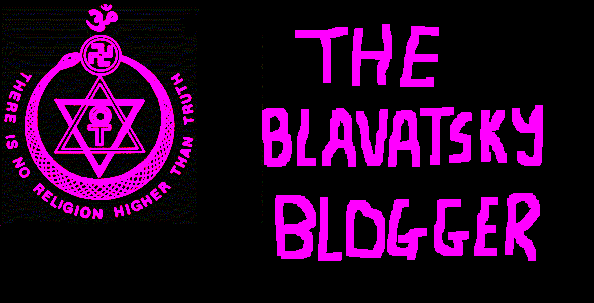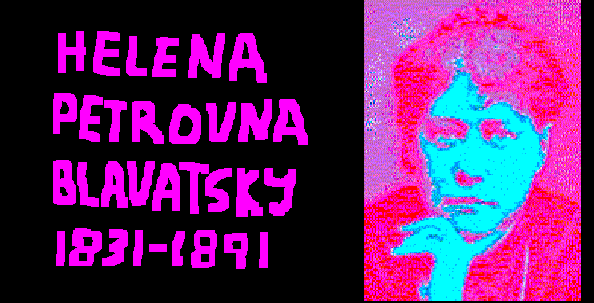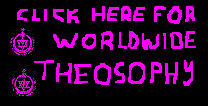
Taking Theosophical
ideas
into the 21st
century


George
Lansbury
Probably
the only Theosophist to meet Hitler
His
uncompromising Pacifism raises
some difficult questions for Theosophists
Posted
George Lansbury (1859 – 1940) was a long
serving Liberal and then Labour MP who was an uncompromising pacifist who shared
Annie Besant’s concerns for social justice. He joined the Theosophical Society
in 1914 after coming into contact with the leadership and attending lectures.
Prior to his membership of the Society, he was a Christian Socialist and
remained a devout Christian until his death in 1940 he was well known for his
Christian Pacifist views but not generally as a Theosophist and it was rare to
see him mentioned in connection with Theosophy outside Theosophical circles.
I’ve hardly met anyone, Theosophist or otherwise who has ever even heard of
him.
George Lansbury opposed the first World
War and founded, The Fellowship of Reconciliation, an
organization to help conscientious objectors, whereas Annie Besant and later
president C Jinarajadasa supported the Allies and another later President of
the Society George Arundale regarded war as a factor in evolution.
He was one of the founders of the Daily
Herald , a daily newspaper which was for many years, the voice of the Labour
Movement. For a number of years, he was the paper’s editor.
George Lansbury’s pacifist views were
always controversial, even within the labour party, but it was during the
1930’s that matters came to a head, losing him his job and leaving him burnt
out and disillusioned.
During that strange period in British
political history when we had a labour Prime Minister, Ramsey MacDonald,
presiding over a “National” predominantly conservative government, George
Lansbury was leader of the Labour opposition composed of MPs who refused to
join the National Government.
The burning issue of the thirties was
Fascism and what to do about it. Effectively George Lansbury’s position was
that he hated Fascism but opposed the use of force against it. Although
laudable, we can see with hindsight that this approach was going to run into
serious trouble.
It is also sad to note that although
George Lansbury was an outstanding social reformer for decades, most of the
write-ups I have found for him in Encyclopedias and Gazetteers refer to his
pacifism in the thirties and the difficulties it caused him. To help redress
the balance, I have included a page on George
Lansbury Theosophist & Social Reformer
The trouble really began in 1933
The East
Fulham by-election in June 1933, just 6 months after Hitler came to power, was
dominated by the issue of rearmament against Nazi Germany. George Lansbury as
Labour Leader sent a message to the constituency:
I would
close every recruiting station, disband the Army and disarm the Air Force. I would
abolish the whole dreadful equipment of war and say to the world "do your
worst".
Despite
this uncompromising stand, George Lansbury retained the support of much of his
party and survived several attempts to oust him. He offered to resign on
several occasions but lack of a credible alternative persuaded the party to
keep him on.
The crunch
came in 1935 when he opposed not only military action by the League of Nations
but also sanctions against Mussolini’s Italy after its invasion of Abyssinia. He
took the position that sanctions were war under another name. The majority of
the Labour Party did support sanctions and Lansbury found his position
untenable, especially after a vitriolic personal attack at the party conference
by Ernest Bevin. He resigned despite a vote of confidence in his favour to be
replaced by Clement Atlee.
Meetings
with Hitler
George
Lansbury remained a Labour MP until his death in 1940. Despite being 77, in
1936 & 1937, he traveled extensively meeting world leaders in an attempt to
secure peace as a major war was clearly looming. He met Hitler twice and it
hard to imagine what a meeting between these two men would have been like. I
conclude that Hitler would have seen Lansbury’s pacifism as indicative of a
weakness in the British establishment which he could exploit. It is, however,
now very easy to see in the light of history that Hitler could clearly not be
dealt with on a reasonable basis.
The Grand
Tour of National Leaders quite frankly failed and George Lansbury was disillusioned
and exhausted at the end of it.
Fascism on
British Streets

British
Fascist Leader Sir Oswald Mosley is
saluted by his Blackshirt
supporters.
Mosley’s movement was characterized by street violence
mainly against Jews incited by his anti-Semitic
speeches.
Although
Mosley’s Blackshirts posed more of a threat to law and order than a challenge
to British Democracy, there was some concern about the ability of the
establishment to deal with them at the time and it was not until after the
Cable Street Riot of Sunday October 4th 1936 that the Government
passed the 1936 Public Order Act, which banned Fascist uniforms (but not the
salute) and regulated their marches.
George
Lansbury’s reaction to the march that led to the Cable Street Riot caused him a
serious loss of credibility and relegated him to an irrelevant figure with the
general British public. Against the scenario that Mosley’s British
This “ignore them and they’ll go away”
attitude was backed up by the Daily Herald but didn’t cut it in the East End
and nationally was seen as out of touch with the real situation. As it happened
Mosley’s Blackshirts did more or less go away over the following years. The
movement was already in decline by 1936 from its peak of 40,000 in 1934 and,
with their ability to pose in their Italian style uniforms taken away by law,
the British Union of Fascists were down to a small group of diehards by 1939.
Unfortunately Hitler and Mussolini didn’t go away.
George Lansbury’s approach to the threat
of war in the thirties contrasts with that of fellow Labour MP and Theosophist
Peter Freeman. Making several visits to Europe under the cover of Theosophical
Society business he provided many people with the documents required to escape
Nazi oppression. He warned several times that war was coming and saw it as the
cataclysm from which a better world would come.
Peter Freeman’s stand against Fascism
and his support for the use of force to combat it can be seen in this extract
from his 1940 Letter to Welsh Theosophists:-
“Failure
to make adequate preparation, Lack of effective co-operation and widespread
treachery have enabled those who believe in force alone to temporarily get the
upper hand on practically the whole of the continent of Europe. Britain now
stands alone as the bulwark of justice and freedom amongst the fighting nations
of the world. She is, however, secure, not only in the justice of her cause,
but in the power of her defences. A united people will, we trust, effectively
withstand the onslaught of the final stages of the greatest war of mankind.”
Peter
Freeman seems to see the fight against Fascism as Britain’s Dharma or Duty as
the events of history work themselves out.
No normal person, let alone
Theosophists, wants war and clearly Lansbury’s anti militaristic and anti war
stance was very commendable. But what would it ultimately have led to in the thirties?
A neutral stance may have given Hitler no reason to attack us but we may have
ended up as an enormous Guernsey, masters in our own house only by courtesy of
the Fuhrer in a world dominated by a Germany in control of Russian resources
allied to the Japanese Empire.
This is a horrific outcome but on the
other hand Peter Freeman’s better world, which he expected to emerge from the
cataclysm of the Second World War, didn’t exactly happen either. Yes, two of
the worst regimes of all time, Nazi Germany and Imperial Japan were wiped out
and replaced with stable democracies (East Germany took longer to get there)
but the world power structure reorganized itself into well armed major power
blocks that eyeballed each other menacingly for fifty years with only the risk
of nuclear annihilation preventing another world war. This New World Order
didn’t stop war though, these continued with a long list of proxy wars,
Viet-man, Korea, Angola etc. The Cold War is now over but there is still plenty
of confrontation, oppression, war and atrocity about and from a Theosophical
point of view, I would say the cyclic nature of history makes this inevitable.
Progress has been made but the cyclic
nature of history means that we advance on the basis of 2 steps forward with
one step back. As in the 1930s we still live in a world where many people feel
unsafe and as our evolution is unfolding very slowly, this is likely to be the
natural order of things for some time.
______________________
The Blavatsky
Blogger
Taking Theosophical
ideas
into the 21st
century
For more info on Theosophy
Try these
Dave’s
Streetwise Theosophy Boards
If
you run a Theosophy Group, please feel
free to use any
material on this site
The
National Wales Theosophy Website
This
is for everybody not just people in Wales
Cardiff Lodge’s Instant Guide to Theosophy
One Liners & Quick Explanations
The Most Basic Theosophy Website in the Universe
If you run a
Theosophy Group you can use
this as an introductory handout
The
South of Heaven Guide to
Theosophy and Devachan
The main
criteria for the inclusion of
links on this site is that they are have some
relationship (however tenuous) to Theosophy
and are lightweight, amusing or entertaining.
Topics include
Quantum Theory and Socks,
Dick Dastardly and Legendary Blues Singers.
Lentil burgers,
a thousand press ups before breakfast and
the daily 25 mile run may put it off for a while but death
seems to get most of us in the end. We are pleased to
present for your consideration, a definitive work on the
subject by a Student of Katherine Tingley
entitled
General pages
about Wales, Welsh History
and The History of Theosophy in Wales
The Spiritual Home of Urban Theosophy
The Earth Base for Evolutionary Theosophy
Classic Introductory
Theosophy Text
A Text Book of Theosophy By C
What Theosophy Is From the Absolute to Man
The Formation of a Solar System The Evolution of Life
The Constitution of Man After Death Reincarnation
The Purpose of Life The Planetary Chains
The Result of Theosophical
Study
An Outstanding
Introduction to Theosophy
By a student of
Katherine Tingley
Elementary Theosophy Who is the Man? Body and Soul
Body, Soul and Spirit Reincarnation Karma
Try these if you are
looking for a
local
Theosophy Group or Centre
UK Listing of Theosophical Groups
Worldwide Directory of Theosophical Links

